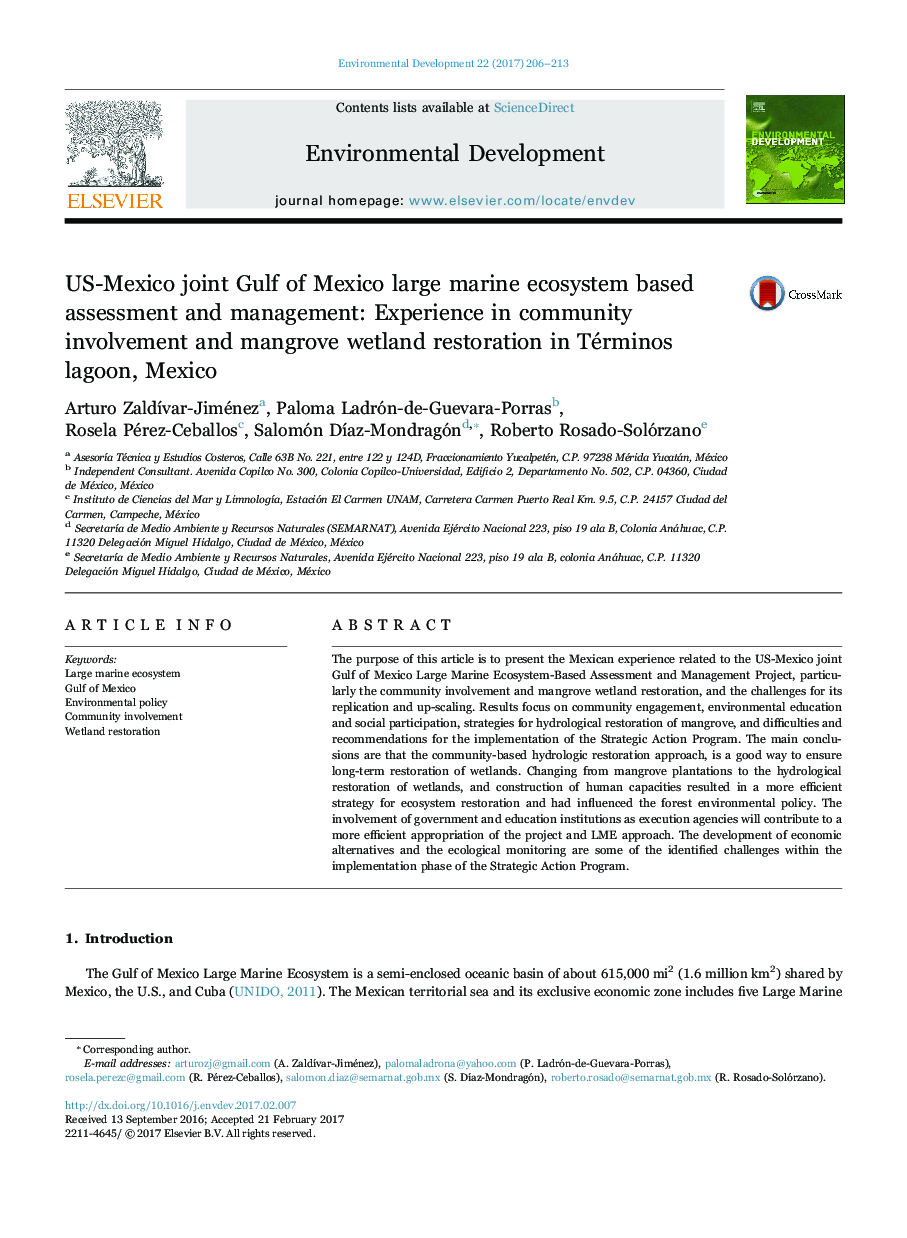| Article ID | Journal | Published Year | Pages | File Type |
|---|---|---|---|---|
| 5744141 | Environmental Development | 2017 | 8 Pages |
The purpose of this article is to present the Mexican experience related to the US-Mexico joint Gulf of Mexico Large Marine Ecosystem-Based Assessment and Management Project, particularly the community involvement and mangrove wetland restoration, and the challenges for its replication and up-scaling. Results focus on community engagement, environmental education and social participation, strategies for hydrological restoration of mangrove, and difficulties and recommendations for the implementation of the Strategic Action Program. The main conclusions are that the community-based hydrologic restoration approach, is a good way to ensure long-term restoration of wetlands. Changing from mangrove plantations to the hydrological restoration of wetlands, and construction of human capacities resulted in a more efficient strategy for ecosystem restoration and had influenced the forest environmental policy. The involvement of government and education institutions as execution agencies will contribute to a more efficient appropriation of the project and LME approach. The development of economic alternatives and the ecological monitoring are some of the identified challenges within the implementation phase of the Strategic Action Program.
